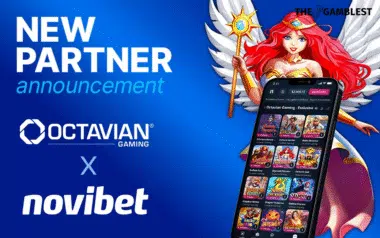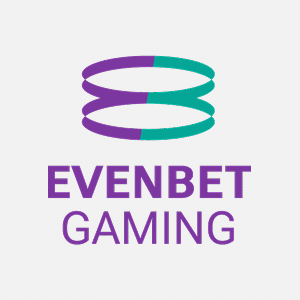In today’s hyper-competitive iGaming landscape, casino loyalty programs are a proven way to turn one-time players into lifelong customers. These programs help increase player engagement and retention, and are absolutely vital for a casino’s success and growth. This guide explains how loyalty programs work, their types, benefits, and the best strategies to make them more effective.
What is a Casino Loyalty Program?
Casino loyalty programs provide players with the opportunity to earn rewards, including real money, through a structured incentive system. These programs are designed to benefit both players and operators by fostering long-term engagement. Players accumulate points based on their gaming activity, which can be redeemed for rewards once a specific threshold is reached. Recognizing the importance of retaining customers, casinos have increasingly implemented loyalty programs as a key strategy to encourage ongoing participation. While the details of these programs may differ between platforms, the fundamental mechanics remain consistent, offering players compelling incentives to stay loyal.
What are the types of casino loyalty programs?
Casino loyalty programs are generally divided into two main types:
Points-based model: players accumulate points for every dollar wagered or game played. These points can be redeemed for a variety of rewards, such as bonus cash, free spins, merchandise, or credits for dining and accommodation. This model is simple and accessible, appealing to a broad audience, including casual players, by offering benefits for consistent participation.
Tier-based model: categorizes players into levels based on their activity and spending. As players progress through tiers—such as moving from bronze to platinum – they gain access to increasingly valuable perks. Higher-tier benefits often include exclusive events, complimentary stays, and personalized services like dedicated account managers. This model rewards loyal and high-value players with a more tailored and premium experience.
How do casino loyalty programs work?
Many online casinos offer loyalty programs, but how effectively do they enhance the overall gaming experience?
Casino loyalty programs are built to reward consistent play and keep players coming back. In most points-based systems, players earn loyalty points by wagering or participating in specific games. As these points accumulate, they move up through loyalty tiers that unlock increasingly valuable rewards. Top-tier members often receive premium perks such as personalized bonuses, faster withdrawals, or dedicated account managers, making these programs a powerful driver of long-term engagement.
Leading operators have refined this approach in their own ways. BetMGM Rewards combines casino and sportsbook points into one wallet, giving players a seamless earning experience across all verticals. Caesars Rewards links gaming, hospitality, and entertainment, allowing members to use their points for hotel stays, dining, and concert tickets. DraftKings Dynasty Rewards gamifies progress with missions and seasonal tiers, while LeoVegas Royal offers tailored promotions and VIP access for loyal players.
Depending on the structure, rewards can include everything from bonus incentives and free bets to cashback and exclusive experiences. Some programs, like MGM Rewards, run on automated systems that track every wager, while others use event-based participation where players must complete challenges to climb tiers. Automated, points-based models tend to be more inclusive, rewarding both casual users and high rollers. Many also let players redeem points for real money or other benefits, adding flexibility and long-term value to the player experience.
Key benefits of casino loyalty programs
The advantages of participating in casino loyalty programs are extensive and impactful. For players, these programs offer immediate benefits that not only extend a player’s bankroll, but also deliver added value beyond their initial wagers. From a business perspective, loyalty programs serve as a powerful tool for customer retention and directly contributing to the casino’s revenue growth.
Here are the main advantages of casino loyalty programs:
For operators: A well-designed loyalty program is a powerful tool for casino operators, simplifying the process of retaining players and fostering repeat visits. By offering regular players rewards such as points, perks, and exclusive benefits, operators can strengthen customer relationships and boost player engagement, leading to increased time and spending within the casino.
Additionally, these programs provide valuable data on player behavior and preferences, enabling operators to create personalized promotions and experiences that resonate with their audience. Beyond gaming, loyalty programs can drive additional revenue by connecting players to ancillary services such as dining, entertainment, and accommodations. In a competitive market, an effective loyalty program not only enhances customer retention but also establishes a casino as a standout choice, supporting sustained growth and success.
For players: For players, a loyalty program is an opportunity to feel valued and enhance their overall casino experience. These often provide benefits such as earning points for free play, exclusive access to events, or VIP privileges like priority service, all of which add excitement and value to each visit.
By offering additional incentives and discounts, loyalty programs effectively extend players’ budgets, ensuring their time at the casino feels worthwhile. The sense of recognition fostered by tiered programs, which reward frequent play, strengthens the bond between players and the casino. As a result, the casino becomes more than a gaming venue—it transforms into a place where players feel genuinely appreciated and well-served.
Best casino loyalty program strategies
A strong casino loyalty program helps operators retain players, boost engagement, and increase long-term revenue. In today’s competitive market, the best loyalty strategies combine personalization, gamification, and seamless integration to keep players coming back.
Below are key tactics to make your program stand out:
Tiered Reward Systems: Use tier levels to motivate players to play and spend more. Higher tiers can unlock VIP perks, exclusive bonuses, or personalized services that encourage long-term loyalty.
Personalized Rewards: Apply data-driven insights to offer rewards that match each player’s preferences (free spins, hotel upgrades, etc.), showing players they’re valued and understood.
Omni-Channel Experience & Communication: Ensure your loyalty program works smoothly across all platforms – online, mobile, and in-person. Keep players informed with personalized emails, app alerts, and reward updates.
Gamified Features: Add challenges, quests, or milestones to make earning rewards fun and interactive, increasing player participation and satisfaction.
Exclusive Events & Experiences: Offer access to VIP tournaments, concerts, or luxury getaways to create emotional connections and turn regular players into brand advocates.
Non-Gaming Perks: Broaden appeal with non-gaming rewards like dining, spa, or entertainment benefits. Integrating these enhances overall value and boosts player engagement.
What’s the difference between Casino Loyalty Program and Casino Vip Program?
The primary distinction between casino loyalty programs and VIP programs lies in their target audience and the nature of the benefits they provide. Both aim to incentivize players and foster ongoing engagement, but their approaches and rewards are tailored to different groups.
Unlike regular loyalty schemes that are open to everyone, VIP programs are often invitation-only and tailored to the casino’s most valuable patrons. These programs provide exclusive benefits like faster withdrawals, higher betting limits, and dedicated account managers, making the experience more seamless and personalized.

The Takeaway?
A well-crafted casino loyalty program is more than a marketing tool it’s a strategic investment in player retention and brand growth. With combining everything that the loyalty programs suggest, casinos can transform casual visitors into long-term, loyal players. Programs that go beyond gaming create emotional connections that drive repeat visits and higher lifetime value.
Ready to elevate your player retention strategy? Loyalty is the true differentiator here. Casinos that continuously refine and personalize their loyalty strategies will surely retain players and build a trusted, recognizable brand that stands out in a competitive market.
FAQ about Casino Loyalty Programs
Are loyalty programs an essential part of casino?
Loyalty programs have become a cornerstone of casino operations. They help casinos retain players, encourage repeat visits, and build long-term relationships. By offering consistent rewards, exclusive benefits, and a structured incentive system, loyalty programs provide a compelling reason for players to return. While not every casino offers a formal loyalty program, those that do often enjoy enhanced customer engagement and higher revenue from their most dedicated players.
What are the disadvantages of casino loyalty programs?
While loyalty programs can be highly beneficial, there are some potential drawbacks. Some players may feel that the rewards don’t match their level of play or that the program structure is too complex. Additionally, frequent players might find that the incentives encourage them to spend more than intended. For casinos, loyalty programs can be expensive to maintain, and if not managed properly, they may not generate the intended increase in customer retention or profit.
What percentage of casino loyalty programs fail?
Studies (for instance, by McKinsey & Company and Forrester Research) have shown that loyalty program failure rates can be surprisingly high, with some estimates suggesting that around 70–80% of loyalty programs don’t deliver the results their creators expected. Common reasons for failure include poor program design, insufficient communication with members, and a lack of meaningful rewards. To succeed, casinos need to ensure their programs are easy to understand, provide valuable incentives, and continuously adapt to meet customer expectations.
















